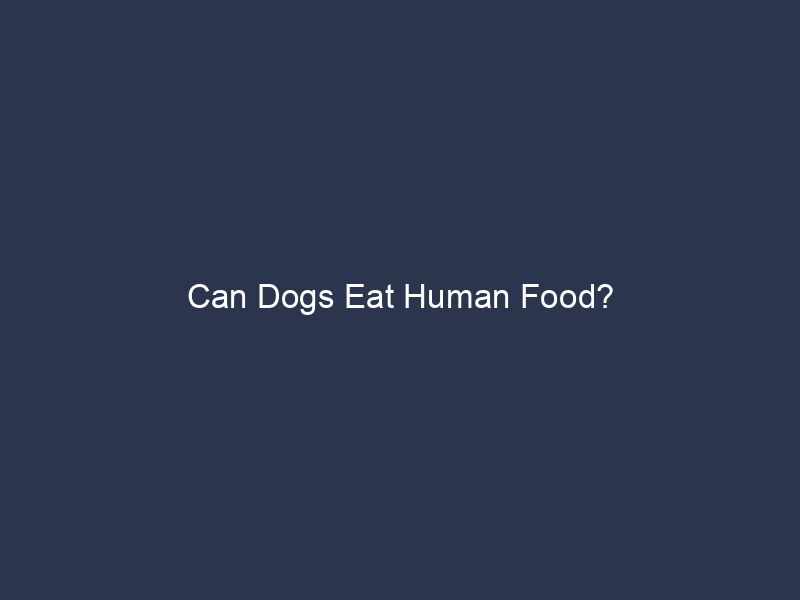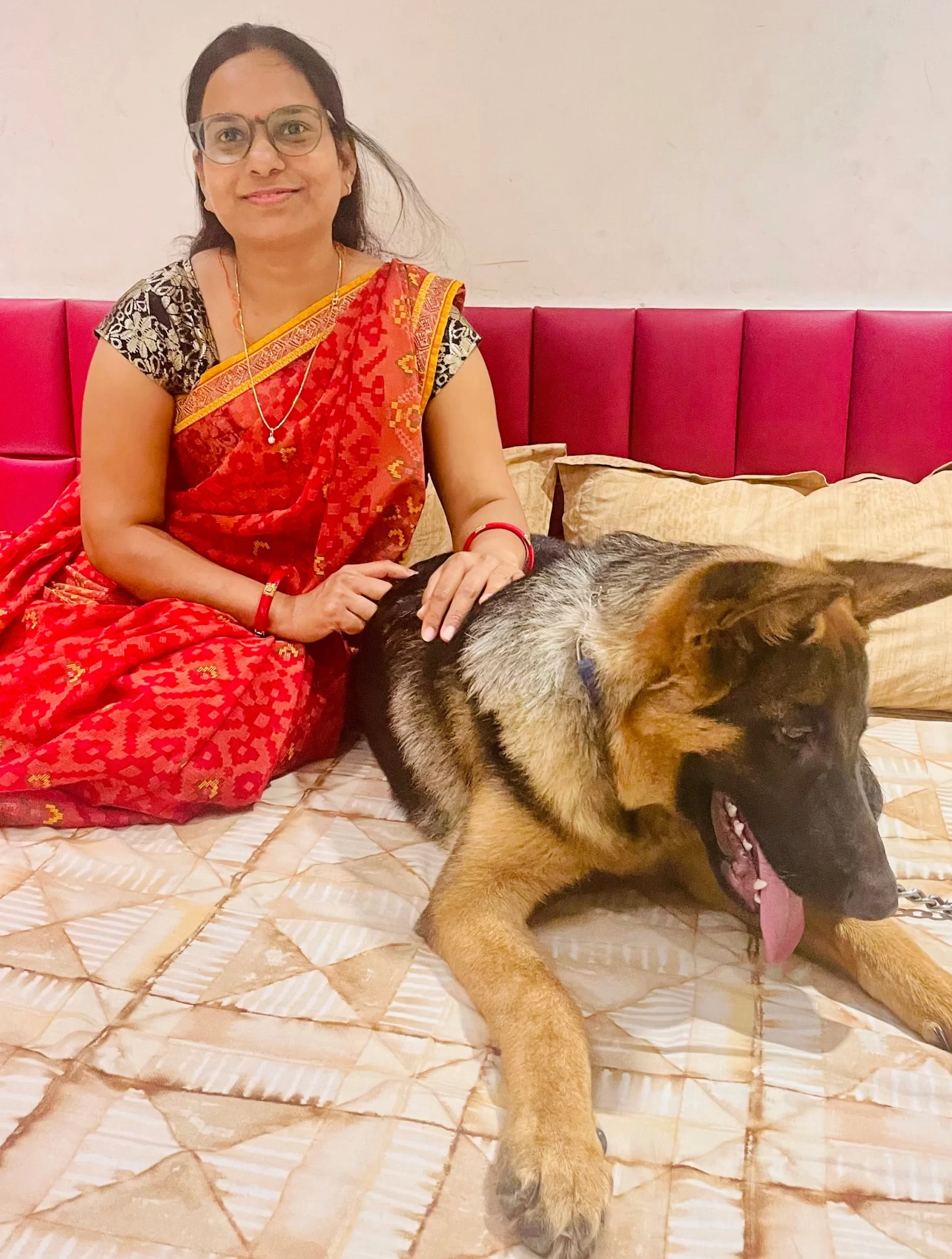As a dog owner, you may have often wondered if it’s safe to share your food with your furry friend.
While it may seem harmless to offer your dog some of your leftovers or a piece of fruit, not all human foods are safe for dogs to eat.
In fact, some human foods can be toxic and even deadly for dogs.
In this article, I will explore which human foods are safe and unhealthy for dogs to eat and how to ensure your pup’s diet is well-balanced.
Why You Need to Be Careful When Feeding Your Dog Human Food
While dogs are omnivores and can eat a variety of foods, they have a different digestive system than humans.
Some foods that are safe for humans can be harmful to dogs, and their bodies may not be able to digest certain foods properly.
Feeding your dog a poor diet can lead to obesity, diabetes, and other health problems.
Additionally, some human foods can be toxic to dogs, causing severe illness or even death.
It’s crucial to understand which human foods are safe for dogs and which ones to avoid to keep your furry friend healthy and happy.
Safe Human Foods for Dogs
Some human foods are safe and even healthy for dogs to eat. Here are some human foods you can safely share with your furry friend:
Lean Meats
Lean meats, such as chicken, turkey, and beef, are safe for dogs to eat in moderation. They are an excellent source of protein and can be a healthy addition to your pup’s diet.
However, avoid feeding your dog cooked bones, as they can splinter and cause intestinal blockages or other injuries.
Fruits and Vegetables
Many fruits and vegetables are safe for dogs to eat and can provide valuable vitamins and nutrients. Some safe options include apples, bananas, blueberries, carrots, green beans, and sweet potatoes. However, avoid feeding your dog grapes, raisins, onions, garlic, and avocados, as they can be toxic.
Dairy Products
Plain, unsweetened yogurt and cheese are safe for dogs to eat in small amounts.
They are a good source of protein and calcium. However, avoid feeding your dog milk or ice cream, as they can cause digestive problems.
Eggs
Cooked eggs are a safe and nutritious food for dogs. They are an excellent source of protein and can help improve their coat and skin health.
Whole Grains
Whole grains, such as brown rice and oatmeal, are safe for dogs to eat and can provide valuable nutrients and fiber.
Unhealthy Human Foods for Dogs
While some human foods are safe for dogs to eat, others can be toxic and even deadly. Here are some human foods to avoid giving your dog:
Chocolate
Chocolate contains caffeine and theobromine, which can be toxic to dogs. Even a small amount of chocolate can cause vomiting, diarrhea, and seizures.
Grapes and Raisins
Grapes and raisins can cause kidney failure in dogs. Even a small amount can be toxic and cause severe illness.
Onions and Garlic
Onions and garlic can damage dogs’ red blood cells, causing anemia. This can lead to weakness, lethargy, and other health problems.
Avocado
Avocado contains persin, which can be toxic to dogs. It can cause vomiting, diarrhea, and other digestive problems.
Alcohol
Alcohol can be extremely dangerous for dogs, even in small amounts. It can cause vomiting, diarrhea, difficulty breathing, and even death.
How to Ensure Your Dog’s Diet is Well-Balanced
While it’s okay to share some human foods with your dog, it’s essential to ensure that their diet is well-balanced and meets their nutritional needs. Here are some tips to keep in mind:
Consult with Your Vet
It’s always a good idea to consult with your veterinarian before making any changes to your dog’s diet. They can advise you on the best foods to feed your dog and the appropriate portion sizes.
Choose High-Quality Dog Food
High-quality dog food provides all the necessary nutrients that your dog needs to maintain their health. Look for brands that use whole food ingredients and avoid those with fillers, preservatives, and artificial flavors.
Avoid Table Scraps
While it can be tempting to share your food with your furry friend, it’s best to avoid feeding them table scraps. Many human foods are high in fat, salt, and sugar, which can be harmful to dogs.
Monitor Portion Sizes
It’s essential to monitor your dog’s portion sizes to avoid overfeeding. Feeding your dog too much can lead to obesity, which can increase their risk of developing health problems.
Offer Healthy Treats
Instead of giving your dog table scraps or unhealthy treats, offer them healthy treats, such as carrots, green beans, and apple slices. These treats are low in calories and provide valuable vitamins and nutrients.
Conclusion
While some human foods are safe for dogs to eat, others can be toxic and even deadly.
It’s crucial to understand which human foods are safe and unhealthy for dogs and to ensure that their diet is well-balanced and meets their nutritional needs.
Consult with your veterinarian for the best advice on what to feed your dog, choose high-quality dog food, avoid table scraps, monitor portion sizes, and offer healthy treats.
By following these guidelines, you can keep your furry friend healthy and happy.
FAQs
Can dogs eat peanut butter?
Yes, plain, unsalted peanut butter is safe for dogs to eat in moderation. However, avoid giving your dog peanut butter that contains xylitol, which is toxic to dogs.
Can dogs eat cheese?
Yes, plain, unsweetened cheese is safe for dogs to eat in moderation. However, avoid giving your dog cheese that contains high amounts of fat or salt.
Can dogs eat bread?
Plain, unsalted bread is safe for dogs to eat in moderation. However, avoid giving your dog bread that contains high amounts of sugar or other additives.
Can dogs eat apples?
Yes, apples are safe for dogs to eat in moderation. They are an excellent source of fiber and vitamins.
Can dogs eat popcorn?
Plain, unsalted popcorn is safe for dogs to eat in moderation. However, avoid giving your dog popcorn that contains high amounts of salt or other additives.

